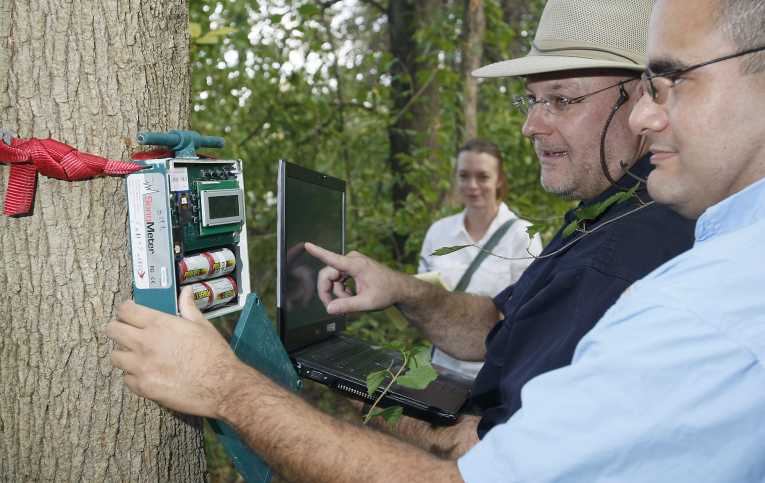Purdue Agricultural Communication photo - Tom Campbell
It’s not often that a whole new area of science can be reported, but if Purdue University associate professor Brian Pijanowski gets his way, we’ll soon all be listening out for the latest developments in soundscape ecology.
Professor Pijanowksi believes that sound is one of the first things to change as an environment changes. He also believes that sound can be an evocative way of connecting people to natural environments.
The associate professor of forestry and natural resources is the lead author of a paper setting out the new field of study in the journal BioScience.
Pijanowski said: ''The dawn and dusk choruses of birds are very characteristic of a location. If the intensity or patterns of these choruses change, there is likely something causing that change.
''Ecologists have ignored how sound that emanates from an area can help determine what's happening to the ecosystem.''
Pijanowski is already at work around Tippecanoe County in Indiana, working in both predominantly natural and human-dominated surrounds. His team has made more than 35,000 recordings which aim to produce a sound picture of how humans impact on an area, replacing natural rhythms with a constant human noise.
''As we continue to become more and more urban, we get used to the urban sounds which are mostly just noise. We're so used to blocking out noise that we block out the natural sounds as well,'' Pijanowski said.
''Animals create sounds for a reason: to convey information. Noise carries no information with it generally. The sound of a car passing by is important, but it is simply making noise as a result of friction. The noise it makes has no information. It's not an intentional signal being produced by a sentient being.''
Pijanowski believes that by losing touch with the sounds of nature we risk losing respect for the natural world.
As recording equipment and software steadily decreases in price and increases in quality, Pijanowski hopes to spread the word of his new field for which he has had to borrow terms like ''biophony'' for the sounds created by organisms) and ''geophony'', for example wind and thunder hitherto used by avant garde sound artists.
''It is really difficult to find people who think the same way since it's such a new field,'' Pijanowski said. ''There are really only a handful of us so far. But we believe in the science and hope to attract others who will make significant contributions.''










